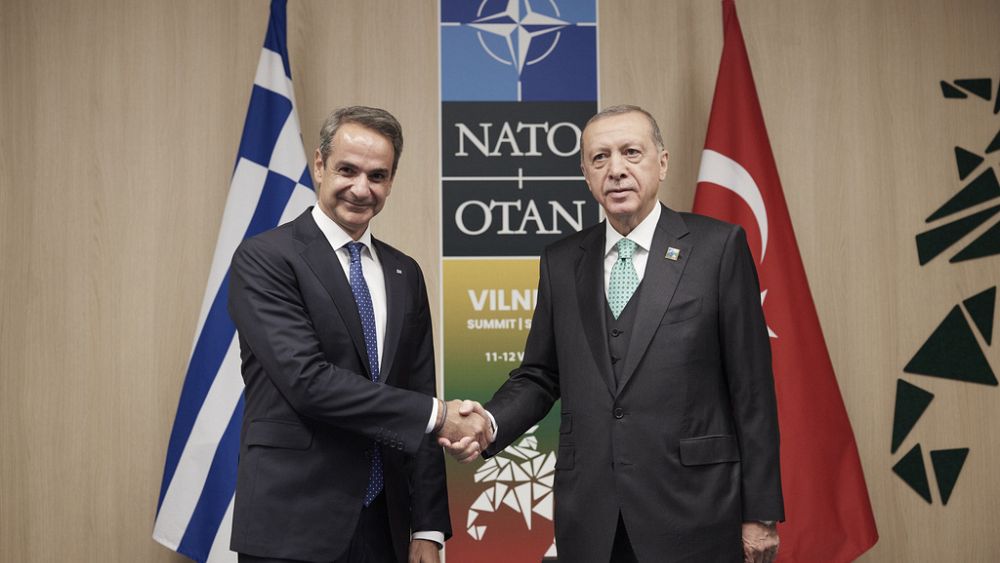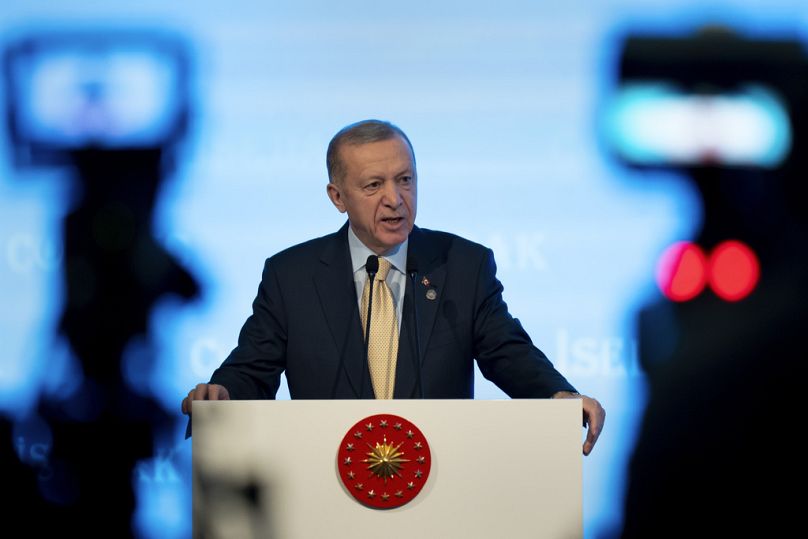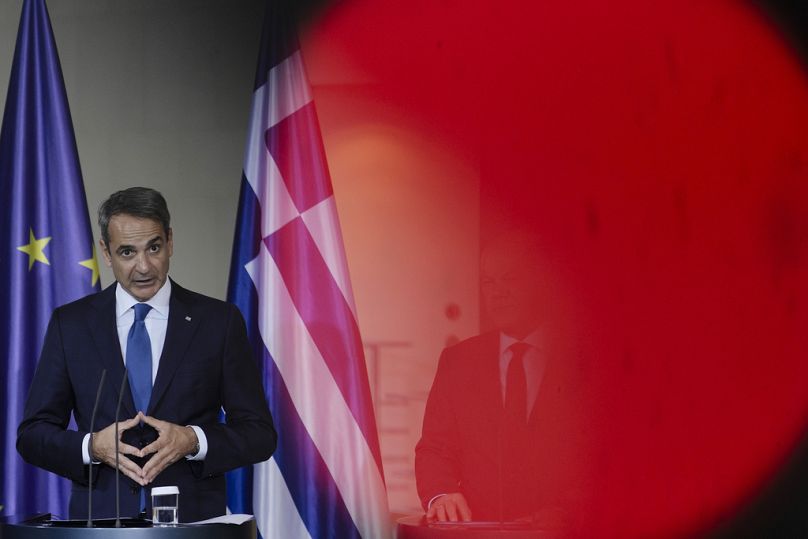
Turkish President Erdogan is visiting Athens today, a significant diplomatic mission aimed at recalibrating the historically strained relations between the neighbouring states.
Erdogan, alongside Greek Prime Minister Kyriakos Mitsotakis, is set to preside over joint cabinet discussions and hold trade talk.
Also on the agenda is the signing of a new cooperation agreement which is intended to sidestep longstanding disputes that have frequently ratched up diplomatic and military tension in the past.
As NATO allies, Greece and Turkey are trying to rebuild trust and collaborate more constructively in the eastern Mediterranean.
Why is the visit happening now?
Both Erdogan and Mitsotakis, recently re-elected, are placing a significant focus on economic concerns.
Greece, amidst a growth spurt after a decade of financial turmoil, and Turkey, grappling with crippling inflation and waning international investments, are looking for common economic ground that could benefit both countries.
“Of course, we have differences of opinion, and there are deep issues that cannot be resolved at once,” Erdogan said ahead of his departure.
“But there are chapters that can be solved immediately and can expand the basis for cooperation. We will head to Athens with a win-win approach.”
This effort to improve relations with Greece also plays a crucial role in Turkey’s broader strategy to mend ties with the European Union and other Western allies.

Plans to sign new migration agreement
The path to reconciliation with the EU hinges on Turkey’s assistance in combatting illegal migration into Europe.
Ten members of Mitsotakis’ cabinet are slated to attend the bilateral meetings, with a primary focus on signing declarations and cooperation agreements with their Turkish counterparts.
The most important is a migration accord, establishing communication channels between the coast guard agencies of the two countries.
These agencies operate in waters between the Turkish mainland and nearby Greek islands, which serve as favoured routes for illegal migration into the EU.
The migration issue remains a political priority in Europe, particularly as the region approaches EU-wide elections without major asylum reforms.

Greece and Turkey: Historical strife
The longstanding tensions between Greece and Turkey involve disputes over maritime space and mineral rights.
Turkey argues that Greece is unfairly claiming a disproportionate share of these resources using the Greek islands that surround its coastline.
In response, Greece accuses Turkey of violating international law, creating a complex and longstanding conflict that has brought the countries close to war on multiple occasions.
On Erdogan’s previous visit to Athens in 2017, live television captured an awkward encounter where both sides aired grievances on issues ranging from the treatment of ethnic minorities and religious freedoms to the need to update international treaties and resolve the division of Cyprus.
The growing list of grievances includes accusations from Greece that Turkey is “weaponising” migration, while Turkey suggests that the sovereignty of eastern Greek islands could be disputed if they continue militarisation.
Day Trip to Athens
Despite Erdogan’s recent criticisms of the Israeli government over the Gaza conflict, his short visit to Athens is expected to adhere to a tight schedule.
Greek officials have already acknowledged signs of improved cooperation, with the Greek minister for migration, Dimitris Kairidis, noting a 60% reduction in illegal migrant arrivals on Greece’s islands in the past two months, largely attributed to enhanced coordination with Turkey’s coast guard.
Kairidis expressed hope that such visits would become routine exchanges between leaders.
The visit underscores a diplomatic effort to bridge gaps, ease tensions, and foster collaboration in the region.





